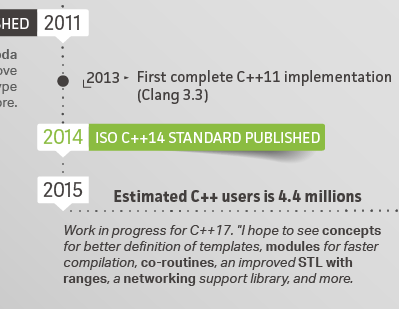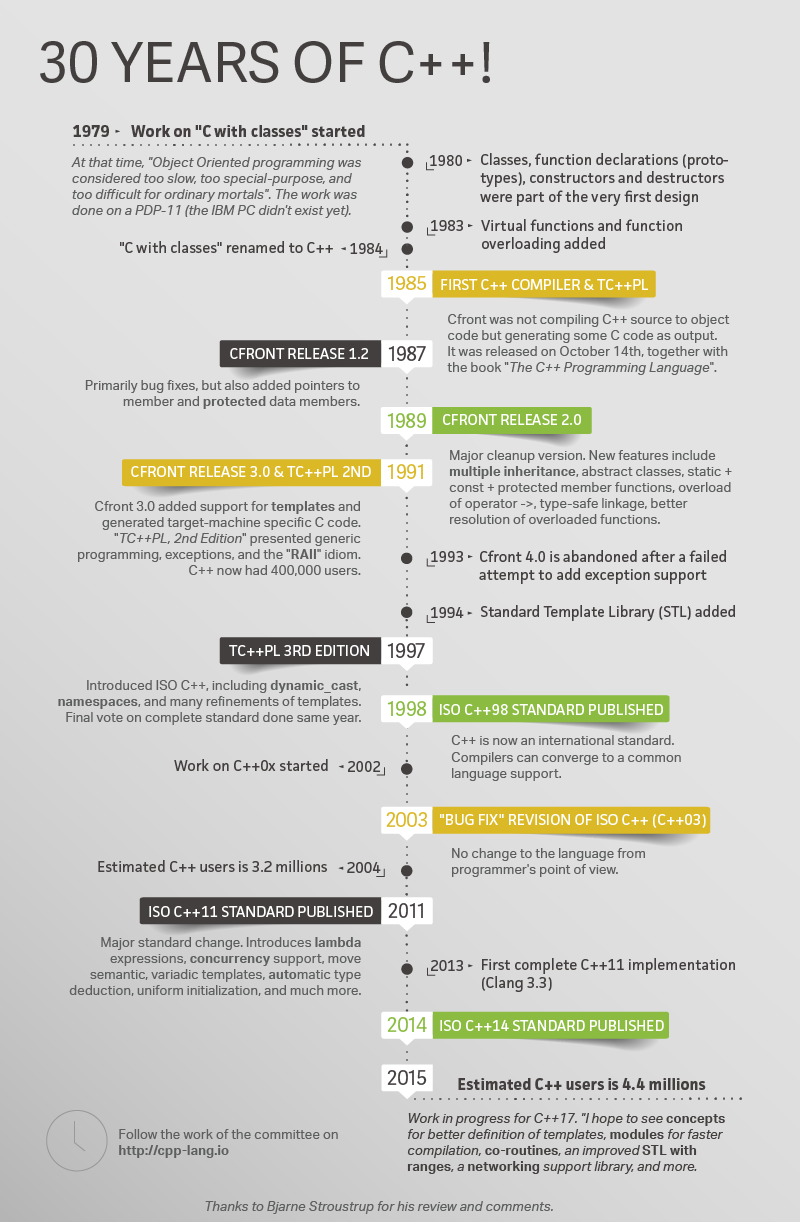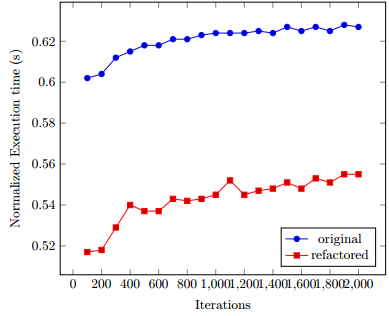Bjarne Stroustrup on the 30th anniversary of Cfront (the first C++ compiler) -- A. Regat-Barrel

Bjarne Stroustrup on the 30th anniversary of Cfront (the first C++ compiler)
by Aurélien Regat-Barrel
Candidate for favorite quote: "I did learn a fair bit about C++ by trying to explain it to people." Experienced instructors will all tell you the same thing -- you really grok something after you've taught it to others. Thanks for 30+ years of teaching, Dr. Stroustrup!


 C++ related articles.
C++ related articles. In the "writing better code" department:
In the "writing better code" department: